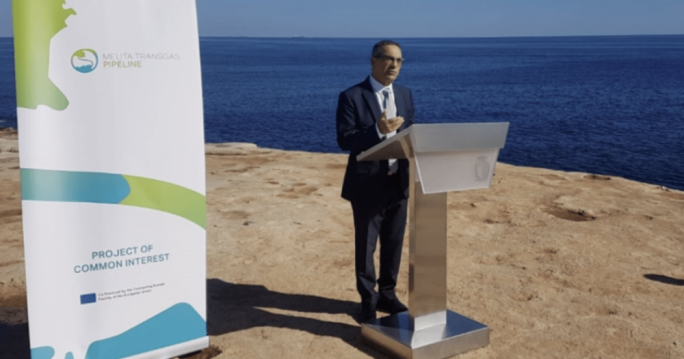The myth of digital nomads
If Malta improves its own internet speeds, provides affordable social rent living space, then there is no reason that we can’t top the list in the near future

With the COVID-19 pandemic pushing more people and organisations to shift into working remotely, physical offices are getting emptier, as digital nomadism is set to increasingly become more popular than ever. This new cohort of workers typically falls into two camps: either freelancers and entrepreneurs, or remote workers and telecommuters.
The main difference is that freelancers and entrepreneurs run their own businesses while remote workers and telecommuters are employees for a company. The benefits of being a freelancer or entrepreneur are that you can truly make your own hours and choose the work you want to do. Remote workers and digital nomads are less motivated by money and would rather accept a pay cut than give up their flexibility.
What this means for employers is that they may be able to hire and retain highly skilled talent for less than the average price tag if they open up to the idea of remote work. With a shortage of qualified IT workers in Malta what are the chances that more and more employers will jump on the bandwagon and let their workers work overseas. In an ideal world, the future workforce will have more freedom to live and work wherever they want to.
The downside is potentially unsteady income and the constant hustle of finding new clients. Life as a remote worker is less about sipping margaritas at the beach than it is about actually getting real work done. Wi-Fi at the beach is notoriously unreliable and can be expensive. What can Malta do to catch up on this trend of experienced workers.
The answer is the recent announcement of Residency Malta Agency, in collaboration with Identity Malta Agency, when it launched a Nomad Residence Permit. The purpose of this initiative is to offer third country nationals the opportunity to work remotely from Malta for a temporary period, in line and in accordance with the legal framework already in place.
What are the advantages of this scheme? Simply put, those who wish to work remotely from Malta for a temporary period of up to one year must prove they can work remotely, independent of location. They should either work for an employer registered abroad, conduct business activity for a company registered abroad, and of which they are partners or shareholders, or offer freelance or consulting services to clients whose permanent establishments are in a foreign country. Non-EU remote workers will be able to apply for a six-month visa and then the option of gaining a one-year Nomad Residence costs a mere €300 for each permit. Entry qualifications include evidence nomads are contracted to work remotely by a company based overseas, show that they run their own business or offer freelance service to clientele based abroad.
Is residence tax free? No sir. All digital nomads need to pay their taxes in a different jurisdiction. Any work carried out by them for local companies would be subject to normal local taxation. Do we need such digital nomads to compete with local service providers? The truth is that transfer of such technology is always a plus. Digital nomads are professionals in communications technologies, design, writing, photography, web programming and other professions that can be done remotely. They relish travel and adventure, and live their lives in a nomadic fashion, roaming the globe and working in co-working spaces, coffee shops, and rented accommodation. While many digital nomads work within start-ups, these communities are not one and the same, and have slightly different needs.
Minister Silvio Schembri last month waxed lyrical about the need for Malta to attract more digital nomads. Reality speaks a different truth. We are not the earthly paradise as a domicile as we rank in the Quality of Life Index’ at 54th out of 59 countries. In the categories of ‘Leisure Options’ (20) and ‘Health and Well-being’ (25) but Malta plummets down the list in the areas of ‘Safety and Security’ (43), Digital Life (46), and ‘Personal Happiness’ (48) and scoring abysmally in the areas of ‘Travel and Transportation’ and ‘Quality of the Environment’ both of which place Malta 56th out of 59. The trophy goes to countries like Georgia, Croatia and Estonia. Greece offers tax breaks and Dubai is investing in co-workers spaces and perks for digital nomads to visit.
In order to apply for Malta’s Digital Nomad visa, you need to be a non-EU citizen with a minimum gross monthly income of 2,700 euros (a princely sum). The relatively high cost of living in Malta when compared to digital nomad favourites such as Thailand can repel potential newcomers. One of the latest countries to join the list of countries competing with Malta is Romania, and it’s going for the top spot in the competition with a minimum income of €1,100 monthly.
Equally attractive is Georgia, having an entry threshold of required monthly income of €1600 minimum while Croatia, requires a minimum of around €2,240 per month and Estonia has a higher threshold of €3,500. Locally, the scheme has attracted some comments from an association set up to help nomads. This is named MDNA, which aims to make Malta the ideal destination for digital nomads by offering support, information, and a range of services.
The intended goals are to provide information about moving to and working remotely in Malta, help digital nomads have a meaningful social impact on others. To qualify as an attractive nomad destinations Malta needs to polish its image by reducing direct taxation as the cost of living is not cheap. Popular destinations have a few main factors in common, namely being that they are affordable, safe, and have fast and reliable internet speeds.
If Malta improves its own internet speeds, provides affordable social rent living space, then there is no reason that we can’t top the list in the near future.






